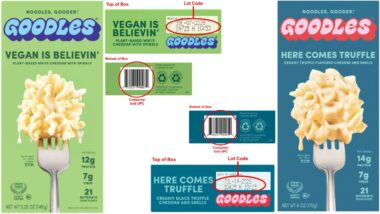 Consumer advocates are looking into whether the Drs Foster and Smith phone number that a consumer would call for customer service is following California recording law.
Consumer advocates are looking into whether the Drs Foster and Smith phone number that a consumer would call for customer service is following California recording law.
In California, all parties to a conversation—which would include the caller to the Drs Foster and Smith phone number or any business line—would need to give his or her consent prior to having the content of the conversation recorded.
This consent rule is frequently just referred to as “two-party” consent law and is being adopted by more and more states. In the state of California, it’s found in the California Invasion of Privacy Act (CIPA) and is part of a long history of protecting the privacy of California residents.
Express and Implied Consent
There is more than one way that the Drs and Smith phone number could get permission from customers when they call in for resolution of product problems and concerns.
One method is by offering the pre-recorded message that so many have become familiar hearing. This message automatically clicks on and may tell the caller, “This call may be recorded for training or quality control purposes.”
This pre-recorded message offers a warning that the caller can then act upon by hanging up. The act of hanging up after calling the Drs and Smith phone number would be the equivalent of saying “no.”
If, on the other hand, a caller chooses to wait on the line for a live customer service representative (CSR), they are providing implied consent in the face of this provided warning.
Many businesses choose to follow up the pre-recording by training their CSRs to ask directly when they make contact with the customer on the phone. This is a legal safeguard. Other businesses aren’t so careful.
Consumer advocates are looking into the phone practices of these companies, to see whether they fall short in honoring two-party consent requirements:
- Dermalogica
- Swarovski
- Mears Transportation Group
- Romano’s Macaroni Grill
- Southwest Rapid Rewards (800-445-5764 only)
- United Airlines Pet Safe (800-575-3335 only)
- Cannondale Bicycle Corporation
- Czech Airlines
In terms of CIPA, the statutory consequences for failing to seek permission prior to recording can be very economically damaging to a company—particularly when complaints are brought against them as class actions.
California call recording laws started out levying a penalty against transgressors of $2,500 per incident, but now that figure has been increased to $5,000 or three times that of damages.
These penalties can be assessed whether it is an inbound call to a California resident or placed by a resident to a business line in or out of the state. You may have a legal claim if this step has been neglected and you have recorded without permission.
If you live in California and you did not receive a warning when calling a toll-free number, your call may have been recorded in violation of California law, and you may be entitled to compensation. See if you qualify to file a California call recording class action lawsuit.
ATTORNEY ADVERTISING
Top Class Actions is a Proud Member of the American Bar Association
LEGAL INFORMATION IS NOT LEGAL ADVICE
Top Class Actions Legal Statement
©2008 – 2025 Top Class Actions® LLC
Various Trademarks held by their respective owners
This website is not intended for viewing or usage by European Union citizens.
Get Help – It’s Free
Join a Free California Call Recording Class Action Lawsuit Investigation
An attorney will contact you if you qualify to discuss the details of your potential case at no charge to you.
PLEASE NOTE: If you want to participate in this investigation, it is imperative that you reply to the law firm if they call or email you. Failing to do so may result in you not getting signed up as a client or getting you dropped as a client.
Email any problems with this form to [email protected].
Oops! We could not locate your form.












